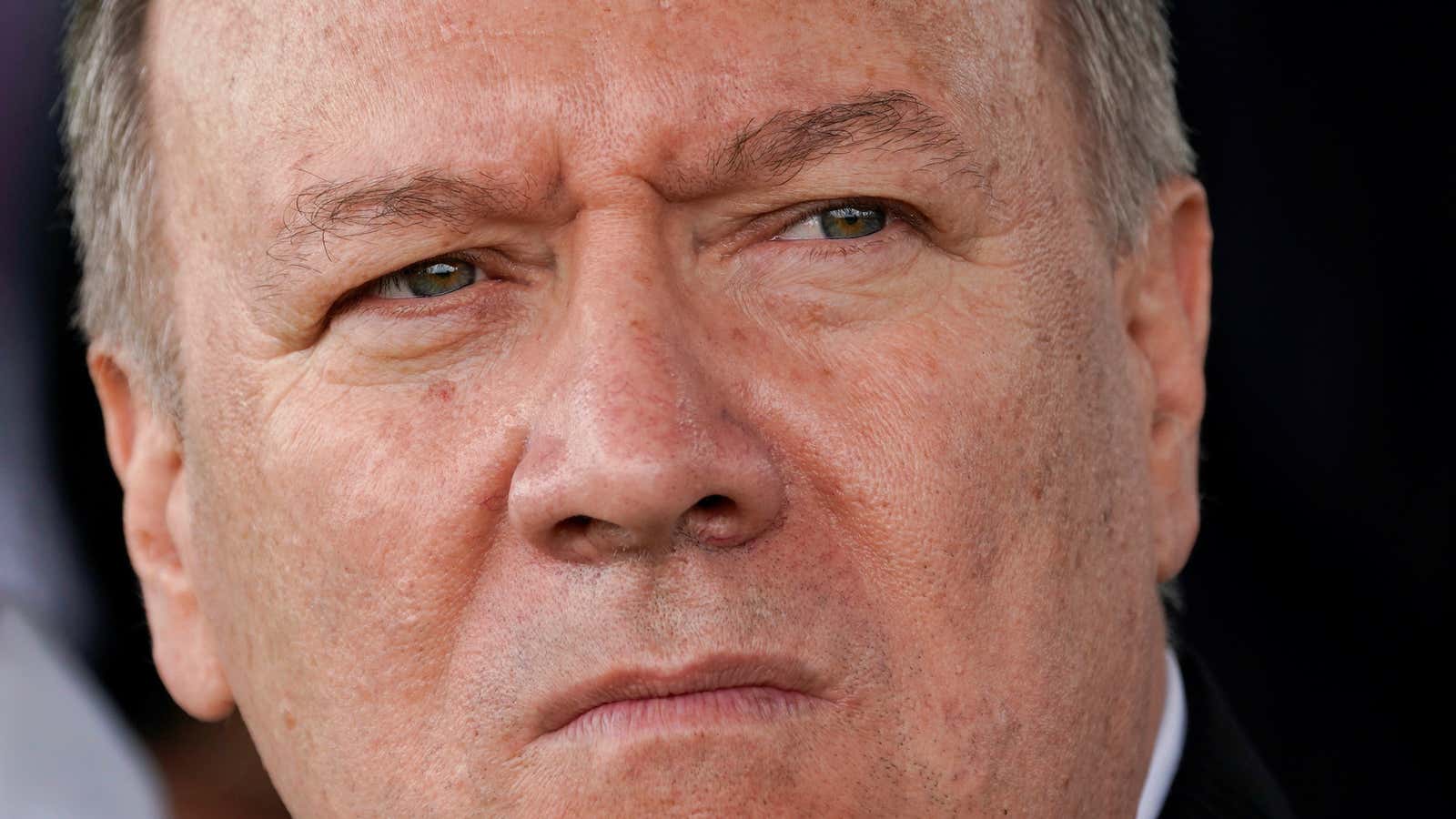US secretary of state Mike Pompeo fired off an angry letter to the House Foreign Affairs Committee today.
In it, he warned that State Department officials who received requests to be deposed in connection with the impeachment inquiry into US president Donald Trump’s Ukraine dealings wouldn’t be attending, at least voluntarily. And his legal reasoning seems to have merit.
The secretary of state said the officials cannot be compelled to appear without a subpoena demanding their presence (so far they’ve only received letters from the committee). He also complained that they were given insufficient notice and time to seek counsel and confer with attorneys, and that the document requests fail to account for executive privilege, among other things.
Congressional committees have the power to subpoena for depositions and documents. However, there are rules regarding sufficient notice. So, in that respect, Pompeo is right. If there are any procedural defects, they could be easily remedied.
Pompeo also claimed the committee was trying to bully career department officials by circumventing their requests that all communications go through the Bureau of Legal Affairs, writing, “Let me be clear: I will not tolerate such tactics and I will use all means at my disposal to prevent and expose any attempts to intimidate the dedicated professionals whom I am proud to lead and serve alongside at the State Department.”
Where the secretary of state may have gotten a little carried away, however, is with respect to executive privilege, which will limit how much he and officials disclose if and when they finally are deposed. Based on the Trump administration’s previous assertions and actions, Pompeo’s view of the privilege is likely expansive. In his letter he demanded that State Department counsel be present at the officials’ depositions to assert privilege and protect confidential communications.
However, one major exception to the assertion of executive privilege has long been in the context of impeachment hearings. As Harvard Law School professor Laurence Tribe told The Atlantic, “The law and history make clear that a formal impeachment inquiry maximizes the willingness of courts to release essential information requested by congressional committees engaged in that inquiry.”
Meanwhile, Engel and other congressional committee chairs announced in a statement today that Pompeo appears to have been on the July 25 phone call between Trump and Ukrainian president Volodymyr Zelensky, which triggered the whistleblower report and the impeachment inquiry. That makes him a fact witness. They likewise called on him to “immediately cease intimidating Department witnesses in order to protect himself and the president.”
